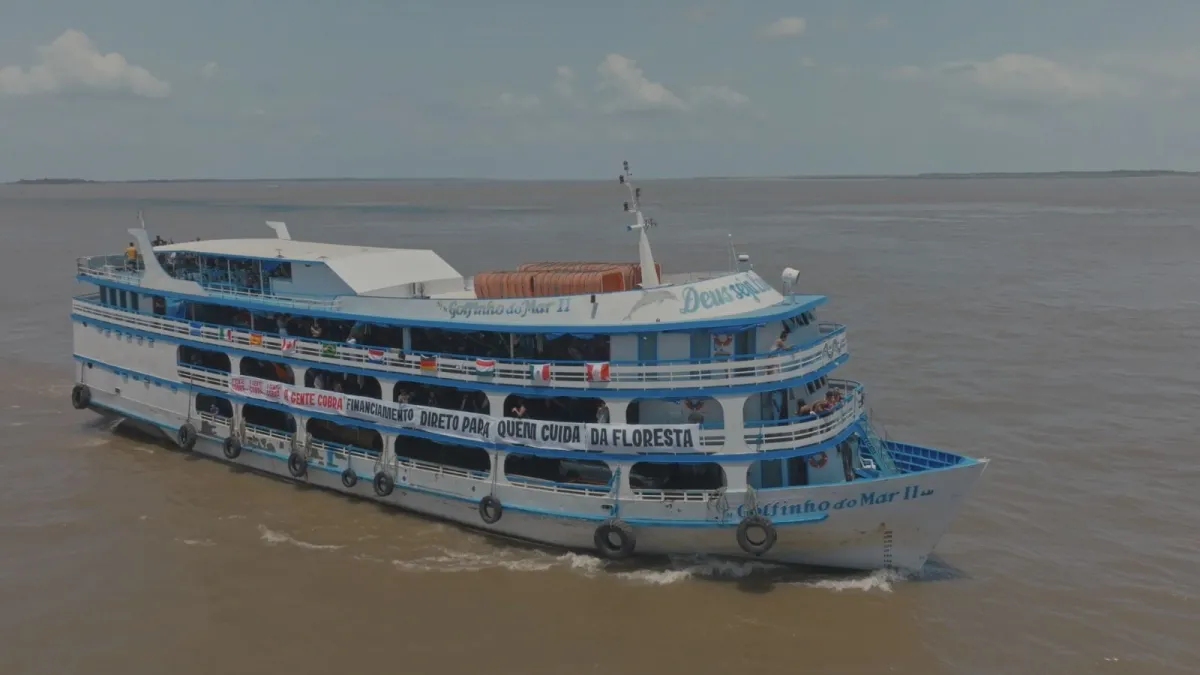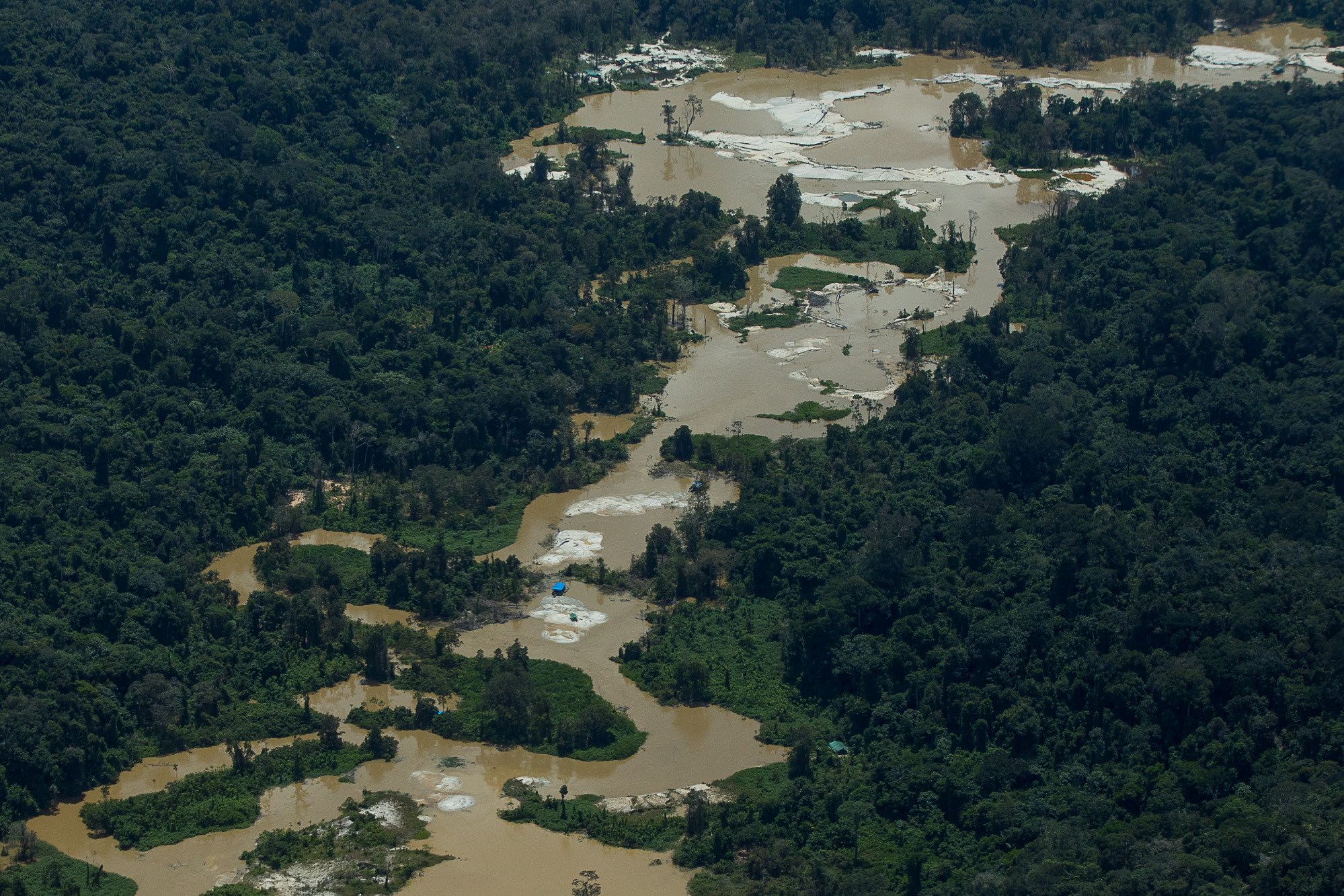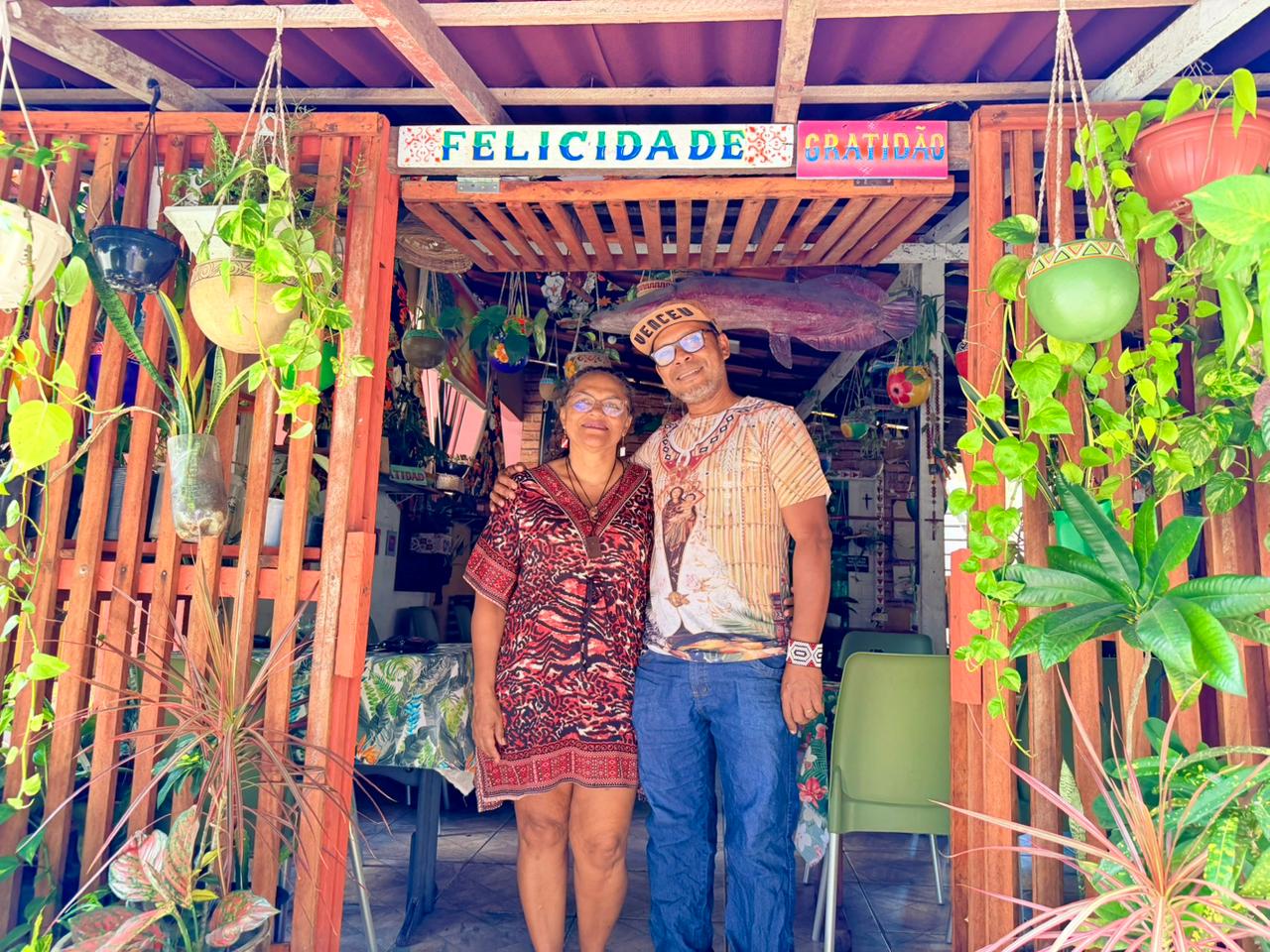
Cobra Boat: the Amazon in motion for life and climate
Cobra Boat mobilizes Amazonian peoples toward COP30 to demand climate justice and the defense of their territories.
Nicole Grell Macias Dalmiglio, for the NINJA COP30 Collaborative Coverage
Heading toward COP30, the Cobra Boat sails through the rivers of the Amazon carrying a collective message from the peoples of the forest to the world. Its journey is more than a physical voyage: it is a political, spiritual, and pedagogical crossing that turns the waters into a road of mobilization. The boat stands at the forefront of the Alliance of Peoples for the Climate, a movement uniting Indigenous peoples, quilombolas, riverine and forest-edge communities, extractivists, and Amazonian youth in defense of their territories and life in the face of the climate crisis. More than just a means of transport, the Cobra Boat is a territory in motion — a space for gathering, dialogue, and education. At each stop, it becomes a river assembly, listening to leaders, debating policies, sharing insights on the impacts of climate change, and strengthening local resistance strategies. Its route stitches together previously isolated riverbanks and gives visibility to voices that rarely reach major decision-making centers, paving the way for the Amazon — in all its plurality — to speak for itself when COP30 arrives in Belém.
In the context of the climate emergency, the Cobra Boat represents a reversal of the historical flow of power: instead of waiting for solutions to come from outside, it is the peoples of the forest who set themselves in motion to declare that true climate policy is born in the territories. To navigate, in this sense, is to resist — and also to announce a new era of alliances, in which the Amazon is no longer seen as an environmental periphery but as a decision-making center in the struggle for the planet’s future.
This initiative revives the spirit of the Alliance of the Peoples of the Forest, founded in 1984 by leaders such as Chico Mendes, Ailton Krenak, Raoni Metuktire, and Paulinho Paiakan. At that time, the unity between rubber tappers and Indigenous peoples was decisive in slowing down deforestation and securing historic achievements such as the creation of extractive reserves and the recognition of the original rights of Indigenous peoples over their lands in the 1988 Federal Constitution (Article 231). The new Alliance builds upon this legacy, but faces an even greater challenge: to confront the impacts of the global climate crisis and to affirm the leadership of the peoples of the Amazon in shaping solutions for the planet’s future.
The manifesto launching the Alliance, also published in Mebêngôkre, the Kayapó people’s language, denounces how climate change is already transforming everyday life in the communities: rivers are drying up, species are disappearing, food production is under threat, and ancestral ways of life are being undermined by agribusiness, mining, land grabbing, and fires. In this context, the document states that “to involve is to care, to plant justice, to protect the planet with dignity and equity,” and asserts that those who live in the forest have both the right and the duty to take part in decisions about the climate and their territories.
Each stop of the Cobra Boat is both a political act and a gesture of care. As it visits the communities, the boat turns into a floating assembly: it listens to leaders, debates policies, exchanges experiences, and strengthens local strategies to face the climate crisis. On every riverbank, new voices join the call of the Alliance, which presents itself “as a network of ancestral struggle for a living Amazon, for whole forests, for the voices of the rivers, for the planet, and for the humanity that breathes within it.” The manifesto reaffirms the historical meaning of this mobilization with a phrase that has become its emblem:
“This struggle is for the demarcation of the present, honoring the past to create new futures. Claim your belonging!”
Among the leaders driving the movement are Ana Rosa Cyrus, Anderson Santos (Ganga), Angélica Mendes, Arewana Juruna, Jaciara Borari, Matsi Waura Txucarramãe, Val Munduruku, Walter Kumaruara, among many other voices representing the diversity of the Amazon. This plurality reflects the central principle of the Alliance: no struggle is isolated when it comes to defending the forest and life.
More than a political organization, the Alliance of Peoples for the Climate is a space of encounter between peoples, territories, and knowledge. The movement seeks to strengthen the leadership of Amazonian youth, broaden strategic alliances, and influence public policies that ensure climate justice and respect for territorial rights. The campaign “A Gente Cobra” (“We Demand”) accompanies the Cobra Boat’s journey, expressing this collective call: it demands commitment, action, and coherence from governments, companies, and society.
The journey of the Cobra Boat will culminate at COP30, to be held in Belém. The Alliance does not intend to arrive as a mere participant, but as a coordinating force of an Amazonian and community-based vision of climate action. The presence of the Alliance of Peoples for the Climate at the conference reaffirms a clear position: the Amazon will not be represented by others. The Cobra Boat is the vessel of this message — a ship that carries upon the waters the cry of the peoples and the announcement of a possible future, where the forest, life, and climate are one and the same struggle.




